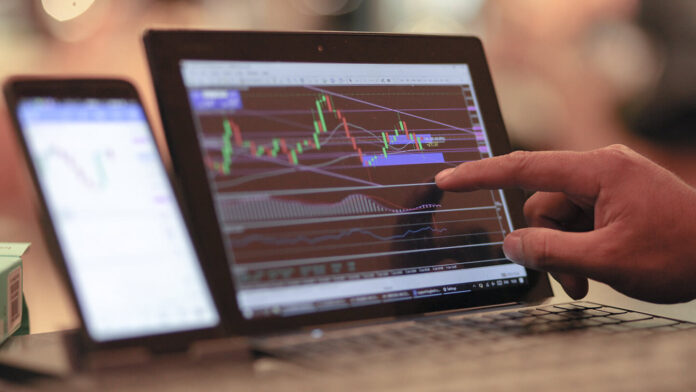
Forex trading, or foreign exchange trading refers to buying and selling currencies to make a profit. It is a global, decentralised market where currency pairs are traded, with the value of one currency determined by its exchange rate with another. Both individuals and businesses can trade forex via forex brokers such as Oanda, which offers access to the global currency market. Forex trading is an important financial activity for investors, the economy, and companies engaged in local and international trade. There are several benefits to forex trading that businesses can enjoy.
Liquidity

The forex market is the world’s largest and most liquid financial market, with a daily trading volume of over $6 trillion. This high liquidity means that buyers and sellers are always available, making it easy to enter and exit trades anytime. This is particularly useful for businesses that need to make currency exchanges regularly, as it allows them to do so quickly and efficiently. In addition, the high liquidity of the forex market means that traders can take advantage of price movements in real-time, which can be especially valuable for businesses that need to respond quickly to changing market conditions.
24-Hour Market
The forex market is open 24/7, five days a week so traders can participate at any convenient time. This is particularly useful for businesses that operate in different time zones or that need to make currency exchanges at odd hours. For example, a business based in the United States that needs to pay a European supplier can do so at any time, even in the middle of the night in the United States.
Low Barriers to Entry

Forex trading can be done with relatively small amounts of capital, making it accessible to many traders, including small and medium-sized businesses. In addition, most forex brokers offer leverage, allowing traders to trade with more capital than they have in their accounts. This is especially valuable for businesses that do not have large amounts of capital to invest, as it allows them to amplify their returns. However, it is important to note that leverage also increases risk, so it is important for businesses to carefully assess their tolerance before taking on leverage.
Flexibility

Forex traders have a wide range of options for choosing the currencies they want to trade, the amount of capital they want to invest, and the duration of their trades. This flexibility allows businesses to tailor their forex trading strategy to their specific needs and goals. For example, a business that needs to make a large currency exchange for paying a supplier could choose to hold a longer-term trade to potentially capture any favorable price movements, while a business that needs to make a smaller currency exchange on a more frequent basis could choose to hold shorter-term trades to take advantage of smaller price movements.
Diversification
Businesses can diversify their investment portfolio and potentially mitigate risk by trading forex. For example, if a business is primarily invested in domestic assets and the domestic currency declines in value, it could offset these losses by gaining on its forex trades. In addition, the forex market is not correlated with other financial markets, such as stocks and bonds, which can provide a source of uncorrelated returns for businesses. Businesses that want to diversify their portfolio across different asset classes will find this useful.
Transparency

The forex market is highly transparent, with real-time quotes and prices available to all traders. This lets businesses make informed decisions about their trades and monitor their portfolios in real-time. In addition, the forex market is regulated by various international organisations, which helps to ensure that it is fair and transparent. The forex market is easily the best way for businesses to exchange currencies, thanks to the regulations and security protocols that countries enforce. Companies only trade with licensed brokers to ensure security and discretion.
Volatility
While volatility can be a risk for some traders, it can also present opportunities for businesses that can capitalise on price movements. By actively managing their trades and using risk management strategies, such as stop-loss orders and position sizing, businesses can take advantage of volatile market conditions to generate profits. It is important for businesses to assess their tolerance carefully and to develop a sound trading strategy.
Decision-Making

Businesses involved in importation and exportation are typically affected by exchange rates. This is a crucial factor for projecting profits. Trading forex gives businesses the advantage of analysing and predicting exchange rates and making decisions based on their prediction. A company might buy more units of a particular material when the exchange rate is lower to avoid paying more if the rate increases. In that way, they save more money and can adjust their products and services to keep a healthy profit margin.
Conclusion
Forex trading offers a range of benefits for businesses, including liquidity, flexibility, diversification, and the potential for profits in rising and falling markets. It is crucial for businesses to assess the risks and potential rewards of forex trading carefully and to develop a sound trading strategy before entering the Market. Businesses can and should take advantage of trading foreign currencies to increase profits.











